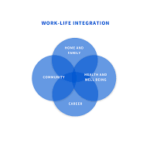Nurturing Resilience and Happy Children: The Benefits of Mindful Parenting
Introduction:
Parenting is a rewarding yet challenging journey that shapes the lives of children. In the midst of busy schedules and daily demands, practicing mindful parenting can have a profound impact on both parents and their children. Mindful parenting involves being fully present, attentive, and non-judgmental in the parent-child relationship, fostering resilience, emotional well-being, and overall happiness. In this article, we explore the benefits of mindful parenting, highlighting how it nurtures resilience and cultivates happiness in children.
- Developing Emotional Resilience
Mindful parenting provides a supportive environment for children to develop emotional resilience. By being present and attuned to their children’s emotions, parents can validate and help children navigate their feelings effectively. Mindful parents teach their children to recognize, accept, and regulate their emotions, which builds resilience and equips them with valuable skills to cope with life’s challenges. - Strengthening Parent-Child Bond
Practicing mindfulness in parenting strengthens the parent-child bond. When parents are present and engaged, children feel seen, heard, and understood. Mindful parents actively listen, express empathy, and provide a safe space for children to express themselves. This deepens the parent-child connection, creating a secure foundation for children to explore their world, seek support, and develop healthy relationships. - Enhancing Emotional Intelligence
Mindful parenting nurtures emotional intelligence in children. By observing and acknowledging their own emotions, parents model emotional awareness and regulation. Through this process, children learn to identify and understand their emotions, as well as empathize with others. Mindful parents cultivate an environment where open communication and emotional expression are encouraged, enabling children to develop strong emotional intelligence skills. - Promoting Self-Reflection and Self-Compassion
Mindful parenting encourages self-reflection and self-compassion, not only for children but also for parents themselves. Mindful parents understand the importance of self-care and self-compassion as they navigate the challenges of parenting. By modeling self-compassion and practicing self-care, parents teach children the value of taking care of their own well-being, fostering a positive relationship with themselves. - Cultivating Mindfulness in Children
Mindful parenting introduces children to the practice of mindfulness. By incorporating mindful activities and practices into daily routines, such as mindful breathing exercises or gratitude rituals, children learn to be present in the moment and develop a heightened sense of awareness. Mindfulness skills can help children manage stress, improve focus, and enhance overall well-being throughout their lives. - Fostering a Positive and Happy Outlook
Mindful parenting contributes to a positive and happy outlook for children. When children feel supported, emotionally connected, and understood, they experience greater life satisfaction and happiness. Mindful parents create an environment that emphasizes gratitude, kindness, and compassion, nurturing a positive mindset in children and fostering their overall happiness.
Conclusion:
Mindful parenting offers a transformative approach to nurturing resilience and happiness in children. By practicing mindfulness, parents create a nurturing environment that fosters emotional resilience, strengthens the parent-child bond, and promotes the development of essential life skills. Mindful parenting cultivates emotional intelligence, self-reflection, and self-compassion in both parents and children. Through the practice of mindful parenting, parents can guide their children towards a resilient and joyful path, empowering them to thrive in all aspects of their lives.




